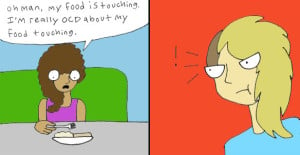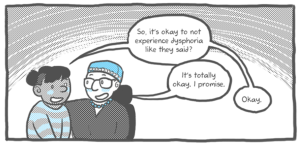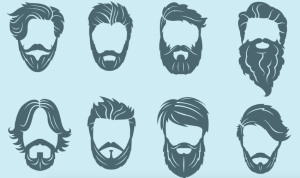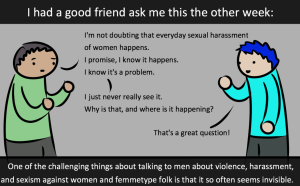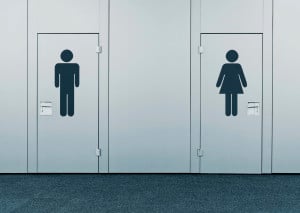
Shot of two friends talking together in a cafe.
Whenever I call my mother at work, I’m often a little taken aback. She picks up the phone, says hello and asks how she can help me. I know she’s my mom but she doesn’t sound like herself. She sounds like her own twin, one who has perfect intonation and articulation.
Until I say “Mom, it’s me.” Her entire tone changes. I feel like I can hear her personality return to her words when she says, “Oh hey, baby girl, how’s ya day goin’?”
She’s code-switching.
Code-switching is most commonly defined by linguists as “the alternation between two or more languages, dialects, or language registers in the course of” a single conversation or exchange, according to Glottopedia, a website dedicated to linguistics.
It is often discussed in reference to bilingual persons. For example, for many Latinx people code-switching is when you quickly flow between speaking Spanish and English, usually mixing the two languages depending on who you are speaking to and in what context.
Code-switchers typically do so for several reasons, but it is generally related to our cultures and communities. Black people usually code-switch between a more Standard English (usually associated with White people or societal elite) and AAVE (African-American Vernacular English), but even the ability to code-switching can also be steeped in classism, educational bias and colorism.
We code-switch between home and work, or corporate spaces and communal spaces.
Take, for example, the recent Sundance film, Sorry to Bother You directed by Boots Riley, staring Atlanta’s Lakeith Smith. The film is about “a Black telemarketer [Cassius] who shimmies up the corporate ranks by finding his inner “white voice,” setting off alarms with his activist girlfriend Tessa Thompson,” said the Hollywood Reporter in a review. His “white voice” sends him down a messy path.
Black people who work or move in white spaces find themselves code-switching a lot and usually to our own detriment. For myself, Cassius and many other Black persons working in white spaces, these are reasons to cut back on the code-switch.
Here are three reasons I, as a Black woman, wish I could cut back on my own code-switching.
1. Code-switching requires work on the part of the “switcher.”
I’ve been code-switching so long and so well that sometimes I don’t even realize I’m doing it. I’ll be having a conversation with a co-worker and suddenly I will have a slight out of body experience. I hear myself speaking and think “Oh Gawd. Is that me?”
But code-switching is not easy. It’s a form of translating. It requires a constant awareness, and though it gets easier the longer you do it, it’s still work.
I learned to code-switch overtime through years of teachers reprimanding the way myself and friends spoke, watching the way my dad spoke to co-workers in his corporate reality job or seeing how white people responded to me differently when I added back the “g’s” to my words and dropped all slang.
I remember feeling like I was somehow ashamed of the way my family or friends spoke when I first began to code-switch like I was hiding a piece of myself from my non-black friends. I didn’t only co-switch in white workspaces but in non-black social spaces as well. I found myself co-switching even when I wasn’t “on the clock.”
Code-switching between Standard English and AAVE is a cool skill to see in action but it’s also a skill learned out of necessity—not choice.
Mainstream white America refuses to accept AAVE (and other forms of Vernacular English) as a worthy form of communication, which is why students are taught in Standard English and not any other vernacular in school. It’s been a hot-button topic in education for decades.
2. Code-switching can be a form of assimilation, embedded with respectability politics.
Why do people Black people (or other people of color) code-switch in white spaces? Well, typically to be better understood.
Speaking in AAVE to a person that doesn’t understand it, you may have to rephrase or explain what you mean, instead—you say it in a way that they will understand—you code-switch.
Some Black people view code-switching as a valuable skill essential to moving successfully through life; just a part of living in America’s melting pot. Others view it as simply making a choice to speak “fluent English.”
But underneath, there is a feeling of judgment and respectability politics or the attempts by marginalized groups to self-police those things about you that are different than the mainstream.
For code-switching, that means viewing Standard English as better than AAVE. In reality, linguists proved decades ago that AAVE has its own set of grammatical and phonetic rules.
The only reason it is not viewed as such is because of linguistic prejudice, based in racism. Standard English is often associated with education and prestige, demanding more social respectability.
It has been proven that in some cases by speaking AAVE you risk losing access to opportunities in the corporate spaces.
In other cases, often dealing with law enforcement, the ability to code-switch to Standard English, or presenting yourself “and behave in a way that [make you] a non-threatening person of color,” said Chandra Arthur, tech entrepreneur, can “be the difference between life or death.”
3. Code-switchers are not giving others the opportunity to learn. It can be a form of coddling.
Ask yourself, “Who is expected to code-switch?”
Code-switching between AAVE and Standard English is not switching languages. It is switching dialects. AAVE is a form of the English Language, and even if you don’t speak it, with practice you can understand it.
Many people of color moving in white spaces do it instinctively, whether out of fear of miscommunication or prejudice, but by code-switching, they coddle those around them.
Instead of challenging them to meet you halfway by learning how better to understand you and this aspect of your culture, they have to do no work at all. By code-switching, you have done all the work for them.
Code-switching should not be a one-way street in which all minorities are expected to code-switch to Standard English. By doing that, we lose the opportunity to learn more about one another.
***
I do not think code-switching is inherently bad. Sometimes, it can mean a quick and easy communication between two people. But it shouldn’t be our default, in order to be taken seriously or respected.
AAVE is a perfectly valid dialect of the English language, and by regularly code-switching, we are not allowing the world to view it as such.
Code-switching, like many other aspects of Black culture—like natural hair, skin-color, jazz or hip-hop music—should be embraced and not hidden away. And no, that doesn’t be that I plan to use AAVE always and in all situations, but we shouldn’t feel punished for doing so, or feel forced to speak Standard English in order to succeed.
Talk the way you talk. Code-switch if you aren’t being understood, but never make it your responsibility or only option. The way you speak is perfectly valid.
[do_widget id=’text-101′]
Maya Lewis is a 20-something Brooklynite, by way of Maryland. She spends her time writing about things she believes are interesting and finding ways to trick people into reading them.
Search our 3000+ articles!
Read our articles about:
Our online racial justice training
Used by hundreds of universities, non-profits, and businesses.
Click to learn more
Most Read Articles
- « Previous
- 1
- …
- 30
- 31
- 32





